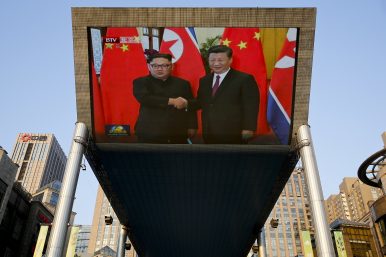 Because New Delhi must compensate for its military imbalance against China, it will strengthen its defense partnership with the United States despite issues of contention such as India's reliance on Iranian oil and Russian arms. If New Delhi continues to deepen its defense partnership with the United States, it will need to reassess its adherence to strategic autonomy, possibly leading to a fundamental shift in the conduct of India's foreign policy.
Because New Delhi must compensate for its military imbalance against China, it will strengthen its defense partnership with the United States despite issues of contention such as India's reliance on Iranian oil and Russian arms. If New Delhi continues to deepen its defense partnership with the United States, it will need to reassess its adherence to strategic autonomy, possibly leading to a fundamental shift in the conduct of India's foreign policy.
New Delhi will aim to encourage technology transfers from key defense suppliers in support of indigenous production.India will increase its purchase of U.S. weapons systems for diversification, particularly after signing a key defense agreement with the United States.












/arc-anglerfish-arc2-prod-mco.s3.amazonaws.com/public/WZGTYCFUZFDYHEFFZJNVK5PYKQ.jpg)
/arc-anglerfish-arc2-prod-mco.s3.amazonaws.com/public/HXHYQAR7JZARFOVIV7ZKXS4CPM.jpg)



